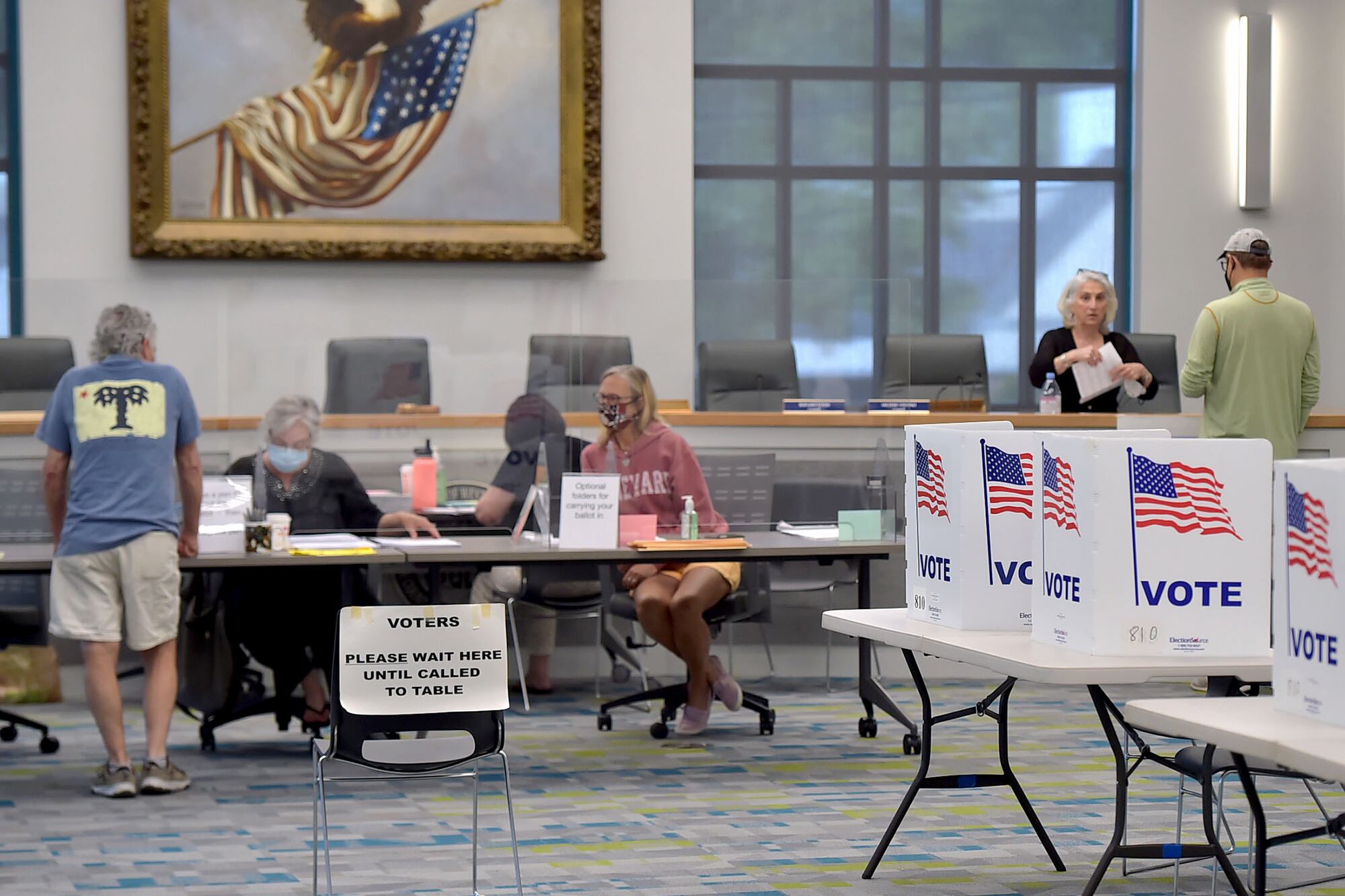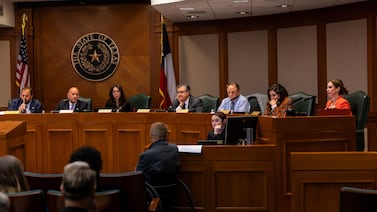Votebeat is a nonprofit news organization reporting on voting access and election administration across the U.S. Sign up for our free newsletters here.
The effort to move Pennsylvania’s 2024 presidential primary date appears to be dead due to a legislative impasse, leaving the commonwealth as the only state with an April 23 election that conflicts with Passover.
In separate statements Thursday, state Senate leadership said the matter was “closed” and House leadership called it “unresolvable.”
The breakdown comes after months of back and forth between legislative leaders to try to agree on a new date and after escalating stress at the county level over the uncertainty of the election schedule.
Counties, which administer elections, are not upset by the outcome.
“Given the current timing, there would have been immense pressure on counties to handle the tasks associated with moving the 2024 Presidential Primary, much less contemplate adding those tasks as we prepare to administer the November election,” John Buffon, a spokesperson for the County Commissioners Association of Pennsylvania, said. “Counties agree it is too late to move the 2024 Primary at this point, and we look forward to working with the General Assembly and Governor to address this issue ahead of 2028.”
A bipartisan, bicameral group of legislators with gubernatorial backing first recommended moving the primary at the beginning of the year, both so it wouldn’t conflict with Passover and so the state’s election would take place earlier in the presidential primary cycle.
But the two chambers could not agree on a new date, and last-minute amendments to one of the two primary bills tanked the effort entirely.
In September, the GOP-controlled state Senate sent a proposal to the House with large bipartisan support that would have moved the date to March 19.
A competing bill in the state House, where Democrats have a one-vote majority, set the date for April 2. Its primary sponsor, state Rep. Malcolm Kenyatta (D., Philadelphia), said it would give election directors more time while not shortening the window for candidates to submit petitions to get on the ballot as the Senate bill would have.
The state House eventually agreed to take up the state Senate’s March 19 bill, but when it did, lawmakers from both parties added several amendments. The amendments, which had not been discussed with Senate leadership, included expanded voter ID, pre-canvassing, and an elimination of the date requirement for mail ballots.
With those additional amendments, the state House voted down the Senate bill by a wide bipartisan margin. The chamber passed the April 2 proposal along party lines and sent it to the Senate.
But it was dead on arrival.
“In the Senate we now consider this matter to be closed,” state Senate Majority Leader Joe Pittman (R., Indiana) said in a letter Thursday to House leadership. He said the Senate had already considered the April 2 date and opted not to go with it since it was too close to Easter and moving polling equipment into churches over the weekend would disrupt the holiday.
The only viable path remaining, Pittman wrote, was for the House to reconsider the Senate’s bill and send it to Democratic Gov. Josh Shapiro.
Democratic leadership in the state House does not appear willing to do that.
“Unfortunately, in light of the counties’ admonition last week, coupled with the Senate’s letter sent this afternoon, this issue seems unresolvable,” Beth Rementer, press secretary for Majority Leader Matt Bradford (D., Montgomery), said in a statement to Votebeat and Spotlight PA Thursday night.
While Shapiro was in favor of changing the date, he had not thrown his support behind either bill. A spokesperson for the governor did not respond to a request for comment Friday.
Rhode Island, Delaware, and Maryland were the other states with primaries scheduled for April 23, and all moved their primaries earlier this year, making Pennsylvania the only state not to do so.
Update, Oct 13, 6:30 p.m.: The proposal may not be completely beyond revival.
Robin Schatz, director of government affairs at the Jewish Federation of Greater Philadelphia, said Friday evening that conversations continue with members of leadership of both chambers. Her group was one of several that met with Shapiro in the spring to talk with him about moving the primary.
“I’m hopeful,” she said. “I think the members understand, especially given the war, that this would be a slap in the face to many Jews.”
Carter Walker is a reporter for Votebeat in partnership with Spotlight PA. Contact Carter at cwalker@votebeat.org.






